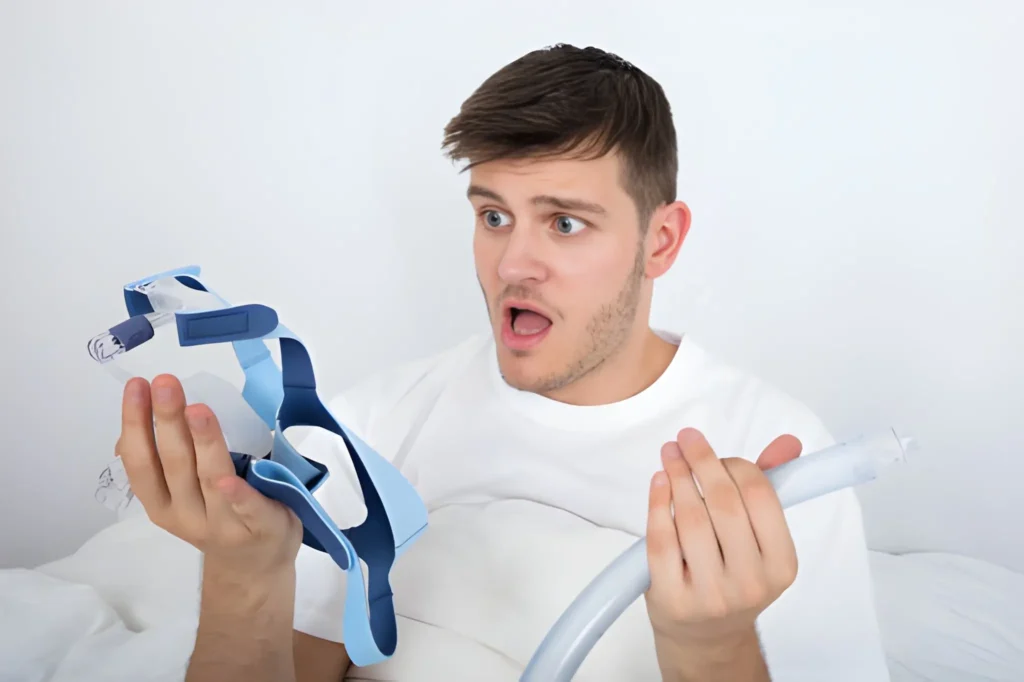Even when continuous positive airway pressure (CPAP) is considered the most effective option in the treatment of obstructive sleep apnea, which is a breathing disorder impacting millions of individuals, there are signs indicating that it is not effective anymore.
CPAP is a good treatment of sleep apnea when used properly and maintained in excellent condition. Nevertheless, the constant symptoms, snoring, cold air form the humidifier are the signs that your CPAP is not functioning properly and that it may be necessary to adjust it or change it completely. If you think it is time to change your device, go no further than OxyMed as they are the best CPAP equipment provider and their equipment is durable as well as reliable.
You’re Breathing in Cold Air:
Cold air entering via CPAP machine may be an indication that the humidifier is not functioning well. CPAP air humidity is absolutely vital since it prevents the development of such side effects as dry mouth, difficulty in sleeping, and other irritating effects.
The humidifier must not be very noisy during operation. When it is pretty noisy while running, find out whether you should change your humidifier or not. Begin by adjusting the humidity controls on your machine and seek the services of a CPAP specialist for further assistance.
Constant Tiredness with This Use.
Another major advantage of CPAP treatment is high energy levels and less daytime drowsiness. In case you wear your CPAP device regularly and you feel exhausted, then this might be that the device is not providing the prescribed air pressure. This could be because of numerous things including a leak in the mask, a clogged filter or even a faulty motor. Constant exhaustion might also indicate that you have to change your pressure levels because the severity of sleep apnea can vary after some time due to weight gain or change in other health aspects.
Look after your mask and check whether it is leaking or not. Check and change the air filter in case it is not clean. In case the problem prevails, call your health practitioner or sleep expert to review the pressure settings or check the machine for any fault.
Air Leaks from the Mask:
One of the most widespread problems of CPAP users is mask leaks. Although small leaks can be usually corrected by changing the mask fit, constant or large leakages can demonstrate the issue with the mask or the device. Leakage may occur because of a worn-out mask cushion, improper sizing, or a broken seal and also due to excessive pressure of air produced by a failed machine. Leaks may lessen the success of the therapy and may result in irritation of the nose or the eyes.
Your CPAP Is Old or Has Mechanical Problems:
Even the best CPAP machines do not last long. As time passes, components may begin to malfunction, and wear and tear may also impact the performance of the machine. Should your machine have some weird noises, it is unable to maintain air pressure consistently or you get some error messages, then it could be some malfunction. The old device may also breed bacteria and allergens, particularly when it is hard to keep clean, or when the spare parts are out of stock.
Using a faulty CPAP machine does not just decrease the effectiveness of the therapy but may also put your health in danger. When your machine is older than five years or mechanical issues are evident then you need to consult your equipment provider regarding servicing, replacing or upgrading your machine.
Also Read-How Machine Learning is Revolutionizing Fraud Detection in the Financial Industry


